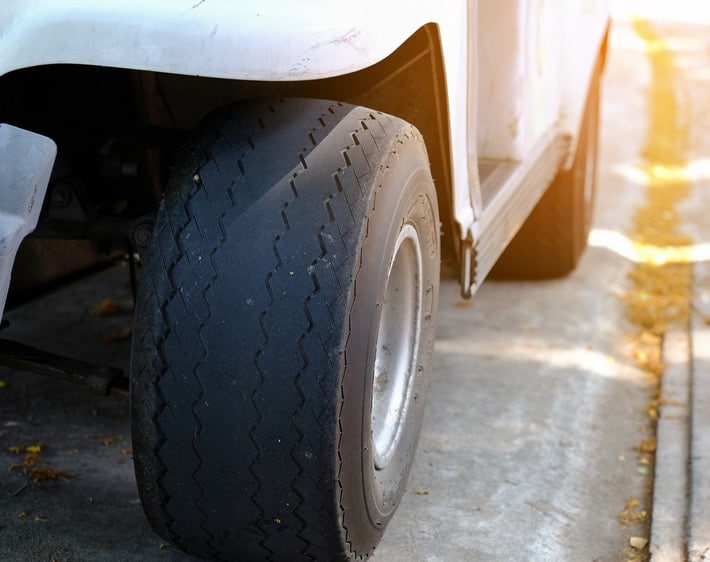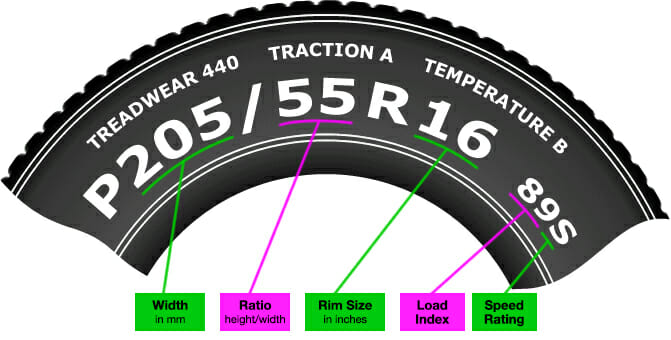How to Know What Tires to Get
There are a few things to consider when purchasing tires for your vehicle. First, you will need to know the size of the tire. Second, you will need to decide on the type of tire.
Third, you will need to decide on the brand of tire. And finally, you will need to decide on the price range that you are willing to spend.
- To know what tires to get, follow these steps:1
- Decide the type of vehicle you will be using
- Consider the climate and terrain where you’ll be driving
- Choose between all-season and winter tires
- Select the right size tire for your vehicle
- Research different brands and compare prices
How to know when it's time for new tires
How Do I Know What Tire to Get for My Car?
There are a few things you need to consider when purchasing tires for your car. First, you will need to know the size of the tires that fit your car. You can find this information in your car’s owner’s manual or by checking the placard on the doorjamb.
Once you know the size, you can narrow down your search by selecting the type of tire that best suits your needs.The three main types of tires are all-season, winter and summer. All-season tires are designed to provide good traction and handling in a variety of weather conditions, including light snow.
Winter tires are made for cold temperatures and snowy or icy conditions. They have deeper treads than all-season tires to provide better grip on slippery surfaces. Summer tires are designed for warm weather driving and offer good grip on dry roads.
In addition to selecting the right type of tire, you will also want to pay attention to the tread wear rating. The tread wear rating is a number that indicates how long a tire should last under normal driving conditions. The higher the number, the longer the tire should last before needing to be replaced.
Should I Replace All 4 Tires Or Just 3?
It’s generally recommended that you replace all four tires on your vehicle at the same time. There are a few reasons for this:1. Even if three of your tires are in good condition, the fourth one may not be.
If you only replace three tires, you could end up with an uneven tire tread pattern which can cause stability and handling problems.2. It can be more cost-effective in the long run to replace all four tires at once. Many tire retailers offer discounts when you buy four tires at the same time, so you may end up spending less than if you replaced three now and had to buy a fourth later.
3. Replacing all four tires ensures that your vehicle will handle evenly and predictably in all conditions – whether it’s dry or wet, hot or cold out. This is especially important if you live in an area with extreme weather conditions.
What are the 4 Types of Tires?
Assuming you are referring to the four most common types of tires, they would be passenger car tires, light truck tires, medium/heavy truck tires, and off-road tires.Passenger car tires are designed for use on sedans, coupes, vans and small crossover vehicles. They typically have a lower load capacity and speed rating than light truck or SUV tires.
Passenger car tires also tend to have a softer rubber compound than other tire types to provide a smoother ride.Light truck tires are designed for use on SUVs, pickup trucks and vans. These tires have a higher load capacity than passenger car tyres but not as high as medium/heavy truck tyres.
They also have a higher speed rating than passenger car tyres but not as high as medium/heavy truck tyres. Light truck tyres typically have a harder rubber compound than passenger car tyres to provide better durability and traction.Medium/heavy truck tyres are designed for use on commercial trucks such as 18-wheelers, garbage trucks and concrete mixer trucks.
These tyres have the highest load capacity and speed rating of all tyre types. Medium/heavy truck tyres also have the hardest rubber compound of all tyre types to provide maximum durability and traction.Off-road tyres are designed for use on vehicles that will be driven primarily off-road such as Jeeps, ATVs and dirt bikes.
Off-road tyres typically have deeper treads than other tyre types to provide better grip in mud, sand or snow. They also often have reinforced sidewalls to protect against punctures from rocks or other debris.
How Much Should You Spend on 4 Tires?
It’s no secret that tires are expensive. A new set of four can cost anywhere from $600 to $1,200 or more. That’s a big chunk of change, and it’s not something most of us can just plop down on the counter at the tire store.
So how do you know if you’re spending too much – or too little – on tires?Here are a few things to keep in mind when budgeting for new tires:1. Tire quality varies widely.
You can find cheapo tires for $50 each, but they’re not going to last long or perform well in different weather conditions. On the other hand, premium tires can cost $200 each but will last much longer and provide a smoother ride. It pays to do your homework and read reviews before buying new tires.
2. The size of your vehicle affects tire costs. Smaller cars typically have smaller tires, which means they’re less expensive than larger tires used on SUVs and trucks. Of course, there are always exceptions to this rule (like low-profile sports car tires), so it pays to know what size tire is right for your vehicle before shopping around.
3 All-season vs summer/winter tyres . In general, all-season tires are a good middle-of-the-road option if you don’t want to deal with changing out your tyres every few months. They work well in a variety of weather conditions, but they may not provide the best performance in extreme temperatures (hot or cold).
Summer/winter tyres , on the other hand, are designed specifically for use in specific temperature ranges (-7°C/+7°C is common). These tyres usually provide better grip and handling than all-season options, but they need to be changed out when the seasons change..
This obviously adds another layer of expense (and hassle) to owning a car! If you live in an area with mild winters and hot summers , all-season tyres may be the way to go . However , if you experience more extreme temperature changes throughout the year , summer/winter tyres may be worth the investment . 4 Run -flat vs regular tyres . Another tyre -related decision you might have to make is whether or not to get run -flat tyres .

Credit: www.firestonecompleteautocare.com
Types of Tires
There are four main types of tires: all-season, winter, summer, and off-road. All-season tires are the most versatile type of tire and can be used in a variety of conditions, including dry roads, wet roads, and even light snow. Winter tires are designed for use in cold weather and provide better traction on icy or snowy roads.
Summer tires are made for warm weather driving and provide good grip on dry pavement. Off-road tires are designed for use on rough or unpaved surfaces and provide good traction in mud or sand.
Conclusion
Assuming you would like a summary of the blog post “How to Know What Tires to Get”, here it is:It can be tough to figure out what kind of tires you need for your car. After all, there are so many different types and brands out there.
But don’t worry – this guide will help you figure out exactly what tires you need.First, you’ll want to consider the climate where you live. If you live in an area with a lot of snow, you’ll obviously need tires that can handle that kind of weather.
On the other hand, if you live somewhere warm year-round, then you won’t need as much traction and can go for a lighter tire.Next, think about the type of driving you do most often. If you spend a lot of time on the highway, then fuel efficiency might be more important to you than off-road capability.
But if you frequently find yourself driving on unpaved roads or in bad weather, then getting a tire with good traction is key.Finally, take into account your budget. Tire prices can vary widely depending on all sorts of factors, so it’s important to find something that fits your needs without breaking the bank.
Keep these things in mind and finding the perfect set of tires for your car will be a breeze!


